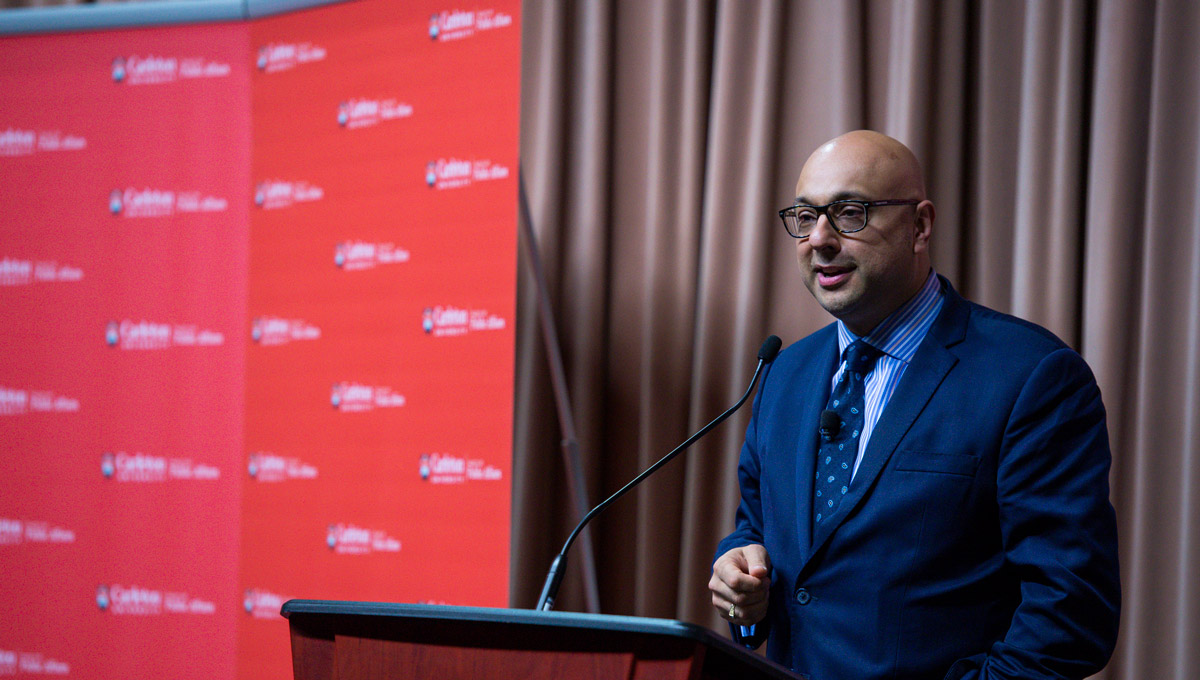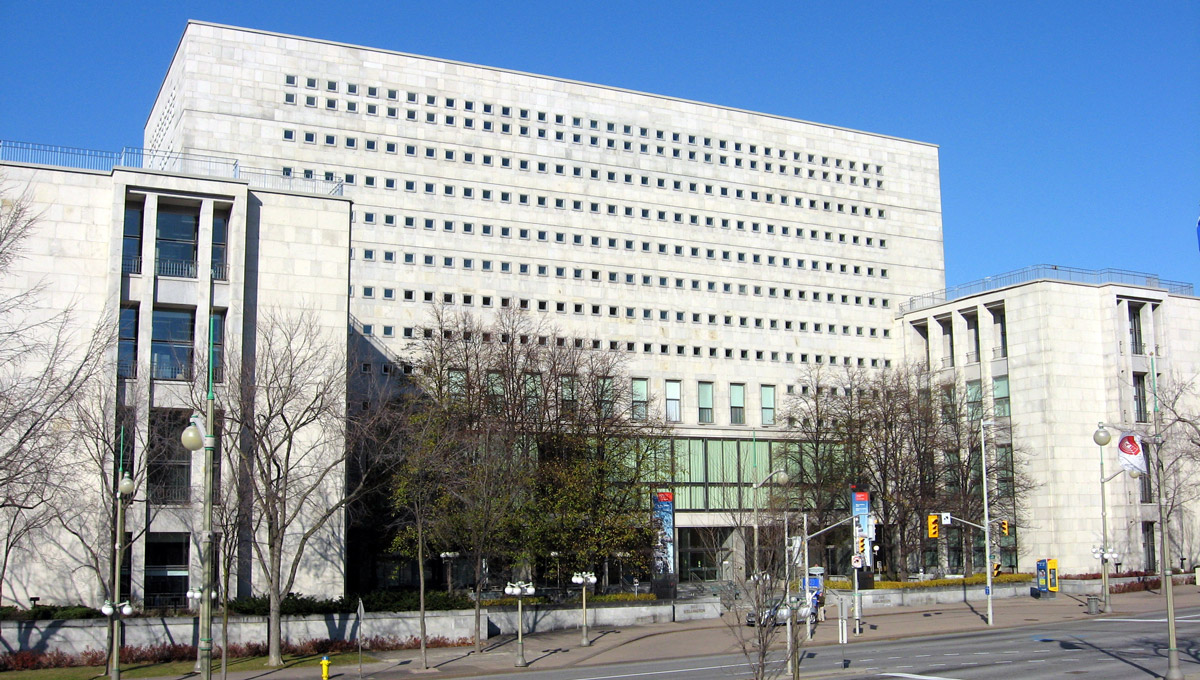This story was originally published by Carleton Newsroom on Tuesday, May 7, 2019.
By Tyrone Burke
Photos by James Park
Politics has been called the art of compromise, but it has become a zero sum game.
Or at least it has for some culture warriors.
In his lecture, The Weaponization of Culture: The Rise of Identity Politics, Ali Velshi shared his thoughts on the role of identity in a shifting political landscape at the first annual Right Honourable Herb Gray Lecture, which celebrated the longtime Windsor MP and former chancellor of Carleton University.
The Toronto-born journalist with NBC News and MSNBC addressed a sold-out auditorium at Library and Archives Canada on May 6, 2019, noting that when identity is mobilized toward political ends it has highlighted injustices against marginalized groups, but identity has also been used to tool marginalize people. Scapegoating has even preceded some of humanity’s worst atrocities.

Empowerment the Goal of Identity Politics
“Often the goal of identity politics is empowerment,” said Velshi
“A group lacks empowerment so they seek coalition to gain it. The disruption of the status quo invariably creates conflict with the mainstream, especially when it has historically enjoyed privilege — whether or not its members realize that. Marginalized groups taking action often stands in contrast to the inertia of those who have no complaint with the way society is working.”
Velshi is an economic journalist, and he notes that class is playing an increasingly important role in U.S. politics, particularly in areas that have not benefitted from the free trade ethos of recent decades. Here, the zero sum calculation comes into play, with immigrants forced to shoulder the blame for disappearing jobs – even with unemployment rates at all time lows.
Combine that with regular attacks on institutions that play key roles in protecting freedoms – the FBI, judiciary and media — and you have a troubling mix.
“We have culture wars all over the world,” Velshi says.
“But in this sense of competition, the weaponization of culture is something that is perhaps more serious: the conversion of identity politics into political action for a particular goal that is not achieved by the tradition of debate and compromise that has characterized much of recent Western democratic history.”

Canada Not Immune
Canada may not be as far down this road as its neighbour to the south, but Velshi cautions that we’re not immune.
“The weaponization of culture works because it’s easier than the alternative. It’s easier than self-examination, than finding the real reasons for a lack of prosperity. It just takes less work. It takes less thought than meritocracy and less work than pluralism.”
The lecture was organized to celebrate Gray’s integrity during his long career and the commitment to facts that he brought to public life. A number of his former colleagues turned out for the event, including former deputy prime minister Sheila Copps, former Ontario finance minister Dwight Duncan, former Ontario premier Dalton McGuinty, former Commons speaker Peter Milliken, and others.
Insightful lecture on identity politics by @AliVelshi of @NBCNews @MSNBC and great Q&A with @SusanDelacourt at the Inaugural Right Hon. Herb Gray Lecture. Many thanks to @sholzberggray and the @RiddellMPM @Carleton_U for bringing us together for this amazing event! pic.twitter.com/ckXgdQWo3H
— Benoit-Antoine Bacon (@CU_President) May 7, 2019
The lecture was staged by the Clayton H. Riddell Graduate Program in Political Management, which trains students in the skills of applied politics. It was the first edition of what is hoped will become an annual affair.
“Higher education is a force for good. We study, teach and learn together so that our students and future generations will inherit a better world,” said Carleton President Benoit-Antoine Bacon.
“So many of Mr. Gray’s qualities connect with what we are here for. He was an outstanding member of Parliament, cabinet minister, and chancellor of Carleton University. He brought a commitment to honesty, integrity and professionalism to public service. Mr. Gray had a respect for parliamentary democracy and a willingness to listen to others.”
Photo of Library and Archives Canada by Padraic Ryan [CC BY-SA 3.0], via Wikimedia Commons.